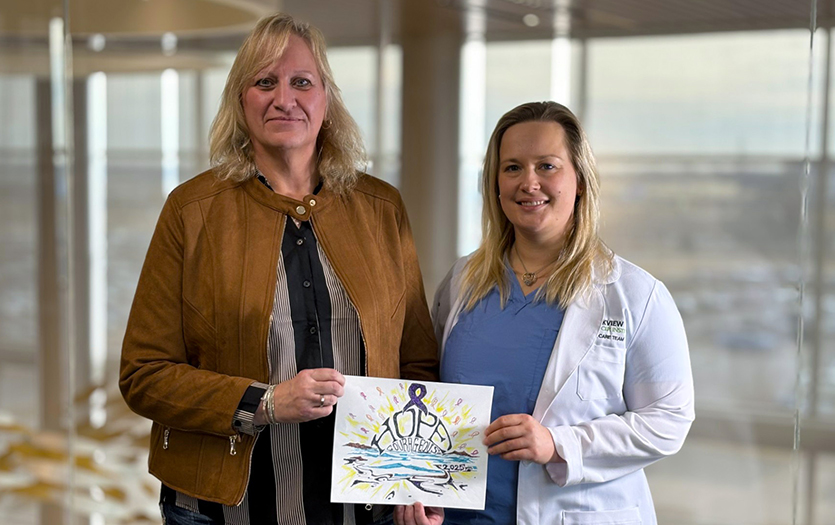Colorectal cancer (cancer in the colon or rectum) is the third leading cause of cancer-related death in the U.S., but it doesn’t have to be. March is Colon Cancer Awareness Month, and a great opportunity to learn that, when this cancer is found and removed early, the chances of a full recovery are very good. Because colorectal cancer rarely causes symptoms in its early stages, screening for the disease is incredibly important. It’s even more crucial if you have risk factors for the disease. We talked with Loren Helmuth, MD, Parkview Physicians Group – General Surgery, Parkview LaGrange Hospital, to learn more.
What factors put someone at greater risk of developing colorectal cancer?
The risks for colon cancer include:
- being over 50
- smoking
- drinking a lot of alcohol
- eating a lot of red or processed meat
- being overweight or obese
- not being physically active
- a family history of colon cancer
- type 2 diabetes
- Crohn’s disease or ulcerative colitis
In addition, if you are experiencing rectal bleeding, you should contact your doctor since this could indicate a problem that needs to be evaluated.
How does colorectal cancer develop?
People develop polyps or growths on the inner lining of the colon or rectum. Most polyps aren’t cancerous, but may become so over time. This happens when cells in these polyps begin growing abnormally. In time, these cancerous cells invade more and more of the colon and rectum and, if not removed, may also spread to nearby organs, lymph nodes or other parts of the body. Finding and removing polyps can help prevent cancer from ever forming.
Symptoms include:
- persistent abdominal discomfort
- rectal bleeding
- a change in bowel habits
- fatigue or weakness
Consider tracking these symptoms and reviewing them with your primary care physician if you have concerns.
What is the best way to prevent colorectal cancer?
The best way to prevent colon cancer is to find and remove any polyps before cancer has a chance to form, and a colonoscopy is still considered to be the gold standard for this process. Colonoscopy is the only screening test that lets us see the inside of the entire colon and rectum. During the test, we can remove any polyps that have formed and take samples of tissue that will be evaluated by a pathologist in the laboratory.
We recommend that beginning at age 50 people should have a routine screening colonoscopy every 10 years. During the in-between years, your doctor may give you a test kit called a fecal occult blood test (FOBT) or fecal immunochemical test (FIT). These are simple tests that check for any occult blood in your stool (blood you can’t see). Hidden blood may be a sign of colon polyps or cancer. Using the test kit at home, you collect a small sample of stool that is then sent to the laboratory. If something suspicious is found through the FOBT or FIT test, your doctor will likely recommend you have a colonoscopy. You could be saving your own life.
For more information, contact Dr. Helmuth’s office at (260) 463-9335.




